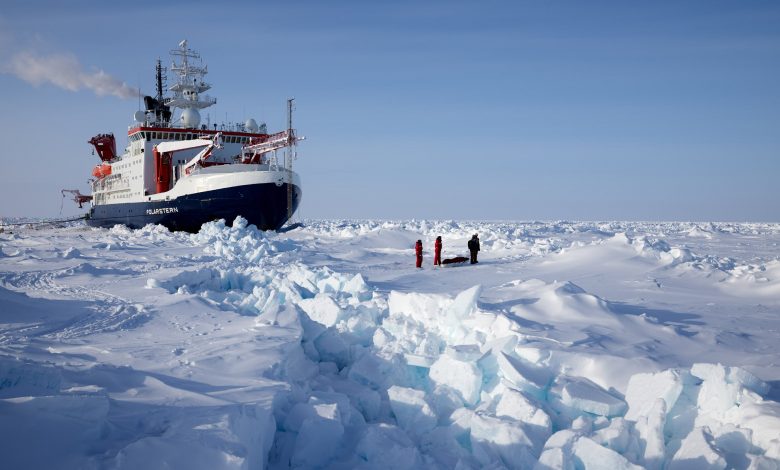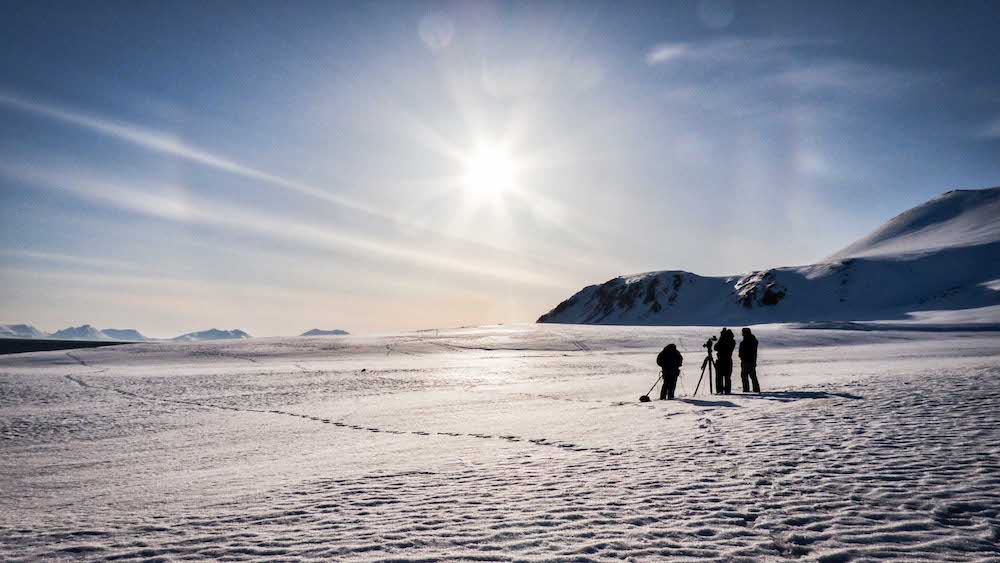
Biggest North Pole Mission Returns From Arctic
عودة أكبر بعثة بعد انتهاء مهمتها في القطب الشمالي
QNA
Berlin: The worlds biggest expedition to the North Pole arrived back in Germany Monday, more than a year after it set off to collect information to understand the effects of climate change on the Arctic.
A spokeswoman for the German Alfred Wegener Institute, which led the international research mission, said that the icebreaker Polarstern left floating ice on Sunday.

The Polarstern ship returned after months spent drifting through the Arctic trapped in ice, allowing scientists to gather vital information on the effects of global warming in the region.
The team of several hundred scientists have seen for themselves the dramatic effects of global warming on ice in the region, considered “the epicenter of climate change,” according to mission leader Markus Rex.
Over the course of the expedition, hundreds of scientists from twenty countries studied data including the ocean, ice, atmosphere and ecosystem to collect data that would assess the repercussions of climate change on the whole world.

The ship departed from Tromso, Norway, on Sept. 20, 2019.
The Arctic holds a major role in the global ecosystem, and experts hope the research will shed light on climate change.
قنا
برلين: عادت اليوم سفينة الأبحاث الألمانية /بولارشتيرن/ إلى مرفأها الأصلي في مدينة /بريمرهافن/ شمال ألمانيا ، بعد سنة من الأبحاث بشأن التغير المناخي في القطب الشمالي.
وقالت متحدثة باسم معهد /ألفريد فيجنر/ الألماني، الذي قاد المهمة البحثية الدولية، إن كاسحة الجليد /بولارشتيرن/ تركت الجليد الطافي أمس الأحد .

وقد جمعت السفينة بيانات وافية خلال الأشهر التي أمضتها السفينة في المياه المتجمّدة في القطب الشمالي، ما يعد بإفشاء معلومات قيّمة عن التغيّر المناخي.
و قال رئيس المهمة ماركوس ريكس “لقد تسنّى لنا خلال الصيف أن نعاني بأنفسنا مدى انحسار الكتلة الجليدية في المنطقة القطبية الشمالية التي يعتبرها الخبراء بؤرة الاحترار العالمي”.
وعلى مدار الرحلة الاستكشافية ، درس مئات العلماء من عشرين دولة ، بيانات عن المحيط والجليد والغلاف الجوي والنظام البيئي لجمع معطيات من شأنها تقييم تداعيات التغيّر المناخي على العالم أجمع.

وكانت السفينة قد انطلقت في 20 سبتمبر 2019 ، من مدينة / ترومسو/ النرويجية.
ويلعب القطب الشمالي دورا رئيسيا في النظام البيئي العالمي ، ويأمل الخبراء أن يسلط البحث الضوء على تغير المناخ.



